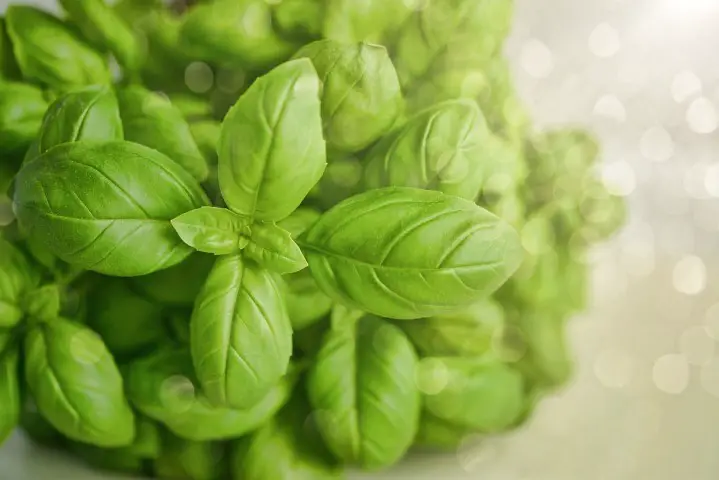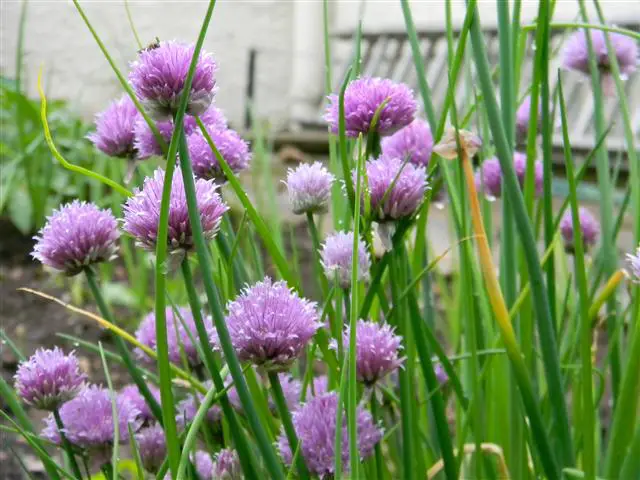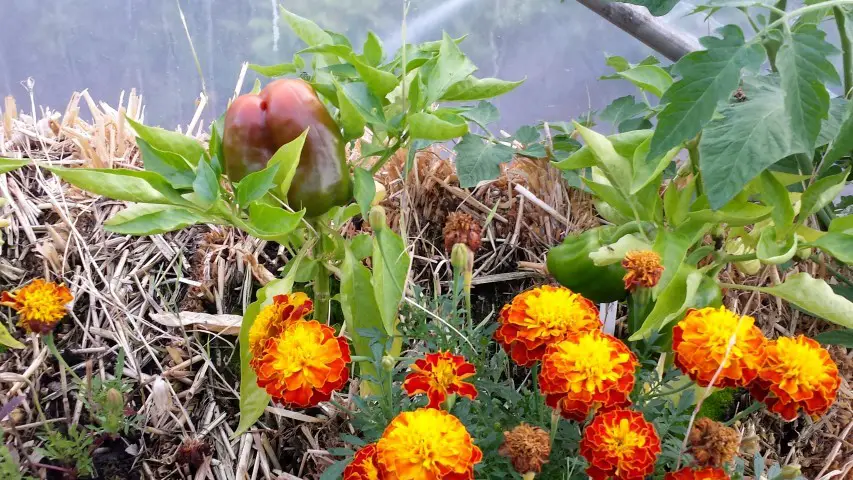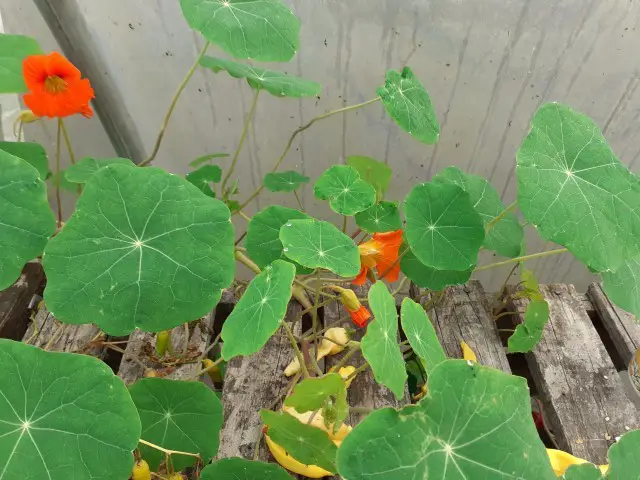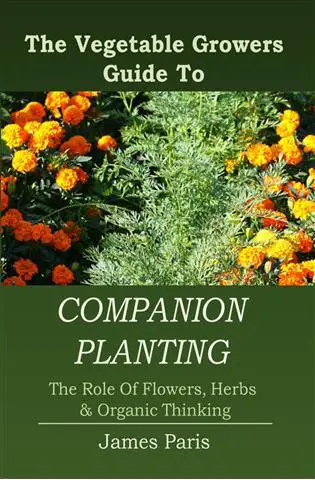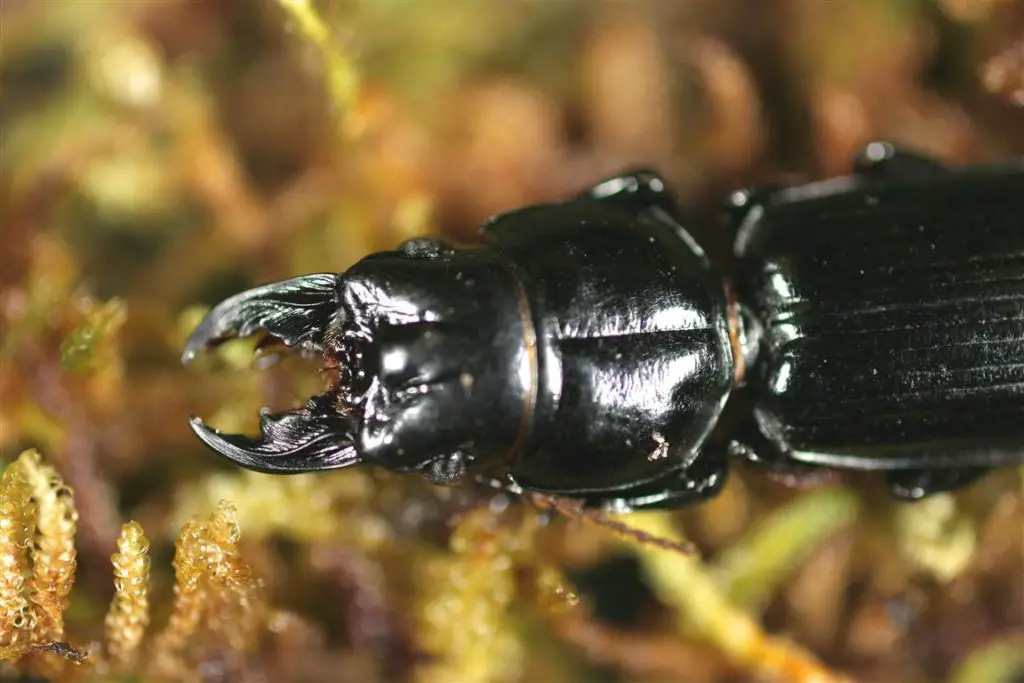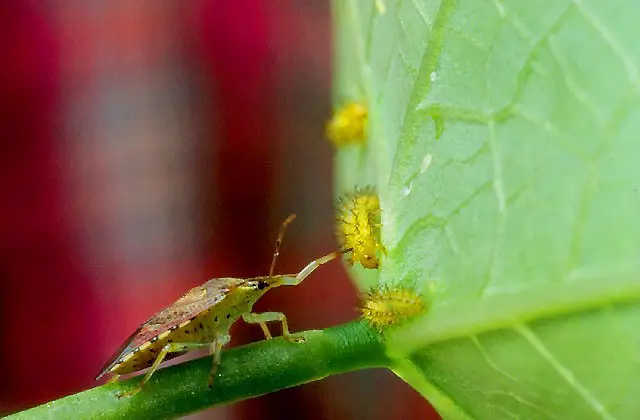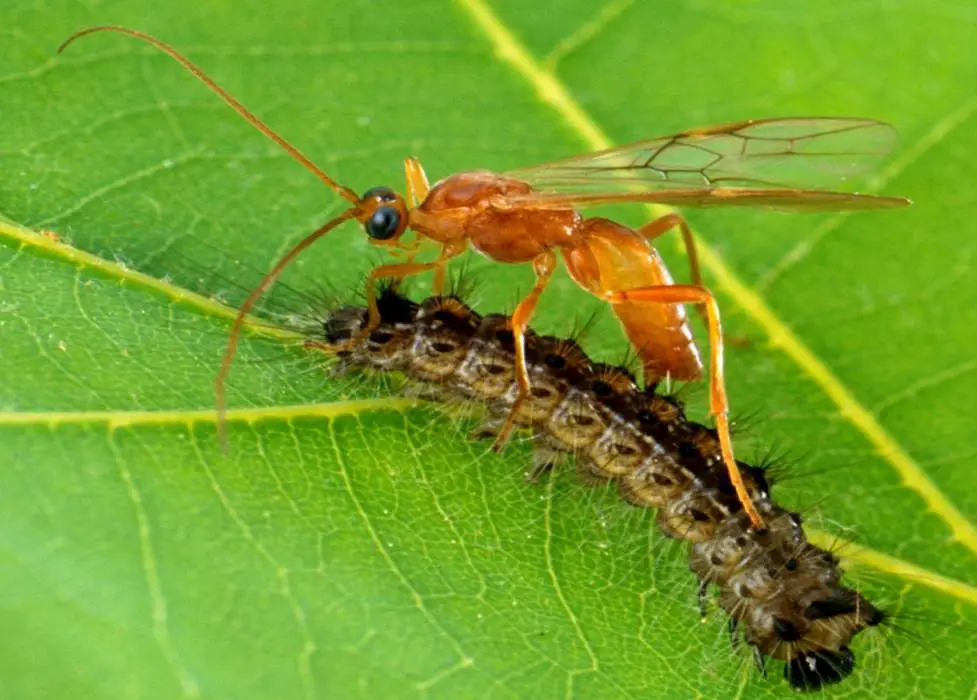As any gardener will tell you, the serene-looking garden may look beautiful and peaceful – but is in fact a battle ground of epic proportions at the insect level.
In fact the job (and challenge) of the gardener is to take control of this battle and ensure the well-being of the plants they wish to grow. The main part of this task is to protect the plants against the ravages of destructive pests.
For the organic gardener, or indeed any gardener who wants to protect the precious natural balance, the use of chemical pesticides is a no-go wherever possible.
This requires a little more thinking ‘outside the box’ and a look at how nature provides protection in the form of ‘friendly’ plants and insects.
Listed below is a selection of common herbs and flowers that can be planted around your vegetables, with a short description of the role they play against particular pests.
List of 20 Pest Deterring plants
Basil (Ocimum basilicum)
Deter flies and aphids. A good insect repellent for flies and mosquitos.
Borage (Borago officinalis)
Attracts predatory wasps that combat caterpillars and helps strengthen resistance to disease.
Bramble (Rubus) Cuttings from thorny brambles and Broom can be placed around vegetables to protect against slugs, which hate the spikes.
Catnip (Nepeta cataria)
An invasive plant that needs watching, it is nevertheless highly effective deterrent against mosquitos and gnats.
Citronella grass (Cymbopogon nardus)
Also called lemon grass. This is an effective deterrent against mosquitos, the essence often included in aromatic candles to place around barbeque areas!.
Chives (Allium schoenoprasum)
The strong scent of chives and garlic distract many insects, and is especially useful against the carrot fly which is attracted to the smell of the carrot plant.
Dill (Anethum graveolens)
Known to repel weevils, and is an especially a good deterrent against tomato hornworm.
French Marigold (Tagetes patula)
French marigold planted alongside your plants will deter squash bugs, tomato hornworm and flea beetles. They will also attract hover flies, whose larvae will happily consume aphids.
Garlic (Allium sativum)
Garlic and indeed chives, onions and leeks, can be grown near carrots to deter and distract the carrot fly.
Geranium (Pelargonium)
This plant is known to poison the Japanese Beetle, which will happily munch away at the leaves, only to fall over paralysed some 30 minutes later! Sometimes it will recover in 24 hours or so, but often will die as a result of being eaten by predators!
Horseradish (Armoracia rusticana)
Horseradish planted between your vegetables gives a good overall protection against many insects including aphids and beetles.
Lavender (Lavandula)
A popular plant because of its wonderful aroma for humans, many insects nevertheless hate it so plant around the garden or in the house to deter flies, gnats, and mosquitos.
Mint (Mentha)
Mint is an effective protection against spiders, mosquitos and ants. Peppermint infused in water also makes an excellent spray to deter mice.
Nasturtiums (Tropaeolum majus)
These can be grown around and between your vegetables as a sacrificial plant, to encourage aphids away from your vegetables and on to this instead.
Oregano (Origanum vulgare)
Good protection against beetles. It is also good to plant around your vegetables as it nourishes beneficial microbes in the soil.
Petunia (Petunia × atkinsiana)
Good to plant around the tomato plants as it repels tomato hornworm.
Rosemary (Salvia Rosmarinus)
Nasturtium and rosemary are planted to deter bean beetles & cabbage moth.
Sage (Salvia officinalis)
Rosemary and sage are known to deter the cabbage moth as well as the carrot fly, by masking the scent of the carrots.
Squash (Cucurbita)
This can be used very effectively as a sacrificial plant to draw cucumber beetles away from melons.
Thyme (Thymus vulgaris)
Plant around vegetable crops to protect against weevils
Beneficial garden insects to encourage
Beneficial planting includes many different aspects of overall plant care, and the benefits of growing ‘good companions’ close together is not only good for deterring insects – but also for attracting the insects that you do in fact want to encourage into your garden.
Yes, not all insects are the gardener’s enemy, and many indeed are your best friend when it comes to controlling destructive pests the natural way.
Our Top 10 Beneficial Garden Insects
Carabid Beetle (Carabidae)
Adults of the native Carabid beetle are voracious predators of Colorado potato beetle eggs and larvae.
Ground Beetle:
Coming from the Carabidae family of beetles, these come in many shapes sizes and colors. This voracious predator will kill a multitude of garden pests both in its larvae and adult stages. The adult will hunt down and eat snails, slugs, cutworms and gypsy moth larvae, while the larvae will feed on other insects at the larval stage as well as their eggs.
Lacewing (Chrysoperla carnea)
The lacewing larvae are voracious predators and will feed on greenfly and blackfly aphids, as well as mites and small arthropods.
Lady Bug (Coccinellidae family)
The lady bug beetle – also called ‘ladybird’ -comes in several colors and is perhaps the best known of the ‘gardeners friends’ when it comes to organic insect control. They will feed voraciously on aphid larvae and scale insects, though their insect diet is considered to be fairly comprehensive.
Praying Mantis (Mantodea)
The larvae of the Mantis have a voracious appetite for aphids and other sap-sucking insects, whilst the adults will consume many kinds of moths and caterpillars. The downside is that they are likely to eat beneficial insects as well as destructive pests!
Pirate Bug (Oris insidiosus)
Both the nymphs and the adults of this bug are natural predators of aphids and other sap-suckers. They will happily feed on the eggs as well as small caterpillars, spider mites and thrips.
Spined Soldier Bug (Podisus maculiventris)
These bugs will feed on the larvae of beetles such as the Colorado potato beetle , Mexican bean beetle and gypsy moth caterpillars amongst many other destructive pests.
, Mexican bean beetle and gypsy moth caterpillars amongst many other destructive pests.
In fact many regard it as one of the top predators for organic pest control purposes. Perhaps one downside is that they do not discriminate between ‘good’ or ‘bad’ insects.
Syrphid Fly or Hover Fly (Syrphidae)
There are many species of hoverfly that make up the Syrphidae family, and the maggots of many of these species are insectivores that will happily feed on aphids and other sap-sucking insects.
Tachinid Flies (Tachinidae)
These large dark-grey flies lay their eggs on cutworms, caterpillars, corn borers, stinkbugs, and many other garden pests.
They are an important pollinator and an effective defense against caterpillar or armyworm outbreaks.
Wasp (Vespa)
Whilst I normally refer to wasps such as yellow jackets as ‘the skinheads of the insect world’ they are nevertheless the gardener’s friend, as they predate on many destructive insects and insect larvae. Many wasps such as the Aleiodes indiscretus (pictured above), use caterpillars as a host for their own larvae, whilst others will feed directly on them.
The natural gardening dilemma
The ideals surrounding natural or organic gardening methods are indeed sound, most gardeners after all are concerned about the very environment that surrounds them and their activities.
However here is the dilemma that we face – how to create an environment where the ‘good’ insects are thriving, and the destructive insects are not.
For example. If we want ladybirds to naturally predate on aphids – which they do. We must in effect have aphids on the plants for them to feed on, otherwise the very solution becomes a problem inasmuch as they will not stay to starve!
Likewise the larvae of the hoverfly love a snack of aphids also, which means we must attract the hoverfly with marigolds for instance which may leach nutrients from the very soil we are growing our tomato plants in – and we still have to be sure there is something for the hoverfly larvae to eat.
I can say virtually the same for the Tachinid fly or the wood wasp. The lacewing or the ground beetle – they all need something to eat and stay healthy enough to ‘work’ in the vegetable patch.
These are just some of the reasons why organic gardening or pest control methods can be quite tricky to operate successfully.
A good understanding of what is actually happening at ‘ground level’ will go a long way when it comes to the overall companion planting vegetable gardening method.
Natural pest control is just one of the elements involved in companion planting as a natural way to grow good healthy vegetables without having to resort to chemical pesticides and fertilizers.
For more information on this subject then why not check out our organic pest control book on Amazon 😊
😊

